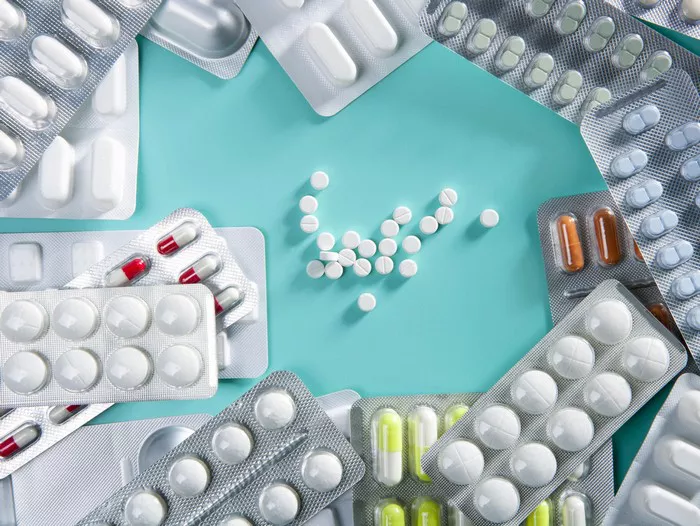COVID-19, also known as the novel coronavirus, has brought the world to a standstill. While there is currently no cure for COVID-19, there are steps that you can take to help support your immune system and potentially reduce your risk of contracting the virus. One of these steps is to ensure that you are getting enough of certain vitamins and minerals. In this article, we will provide a comprehensive guide to the 3 vitamins you should take for COVID, including key features, pros and cons, and customer reviews.
Vitamin C
Vitamin C is an essential nutrient that plays a crucial role in immune system function. It is also a powerful antioxidant that can help protect cells from damage. While there is no evidence that vitamin C can prevent COVID-19, it may help reduce the severity and duration of symptoms.
One of the best things about vitamin C is that it is widely available and can be found in many foods and supplements. Foods that are high in vitamin C include citrus fruits, berries, kiwi, broccoli, and peppers. Vitamin C supplements are also widely available in a variety of forms, including tablets, capsules, and powders.
Pros of Vitamin C
Widely available: Vitamin C is widely available in many foods and supplements, making it easy to incorporate into your diet.
May reduce severity of symptoms: While vitamin C cannot prevent COVID-19, it may help reduce the severity and duration of symptoms.
Powerful antioxidant: Vitamin C is a powerful antioxidant that can help protect cells from damage.
Cons of Vitamin C
May cause digestive issues: Some people may experience digestive issues such as diarrhea or stomach cramps when taking high doses of vitamin C.
May interact with certain medications: Vitamin C supplements may interact with certain medications, including blood thinners and chemotherapy drugs.
Customer Reviews
Overall, customers have had positive experiences with vitamin C supplements. Many users have reported feeling more energized and experiencing fewer symptoms of colds and other respiratory illnesses. Some users have also reported that their skin looks brighter and more youthful since starting to take vitamin C supplements.
However, some users have reported experiencing digestive issues when taking high doses of vitamin C. It is important to talk to your healthcare provider before starting any new supplement regimen.
Vitamin D
Vitamin D is an essential nutrient that plays a crucial role in immune system function. It is also important for bone health and may help reduce the risk of certain chronic diseases. While there is no evidence that vitamin D can prevent COVID-19, it may help reduce the severity and duration of symptoms.
One of the best ways to get vitamin D is through exposure to sunlight. However, many people do not get enough vitamin D from sunlight alone, especially during the winter months. Vitamin D supplements are also widely available in a variety of forms, including tablets, capsules, and gummies.
Pros of Vitamin D
Important for immune system function: Vitamin D plays a crucial role in immune system function, which may help reduce the severity and duration of COVID-19 symptoms.
May reduce risk of chronic diseases: Vitamin D may help reduce the risk of chronic diseases such as osteoporosis, diabetes, and certain types of cancer.
Widely available: Vitamin D supplements are widely available in a variety of forms, making it easy to incorporate into your daily routine.
Cons of Vitamin D
May interact with certain medications: Vitamin D supplements may interact with certain medications, including blood thinners and certain types of cholesterol-lowering drugs.
May cause digestive issues: Some people may experience digestive issues such as nausea or constipation when taking high doses of vitamin D.
Customer Reviews
Overall, customers have had positive experiences with vitamin D supplements. Many users have reported feeling more energized and experiencing fewer symptoms of colds and other respiratory illnesses. Some users have also reported improvements in bone health and a reduced risk of chronic diseases.
However, some users have reported experiencing digestive issues when taking high doses of vitamin D. It is important to talk to your healthcare provider before starting any new supplement regimen.
Zinc
Zinc is an essential mineral that plays a crucial role in immune system function. It is also important for wound healing and may help reduce the duration and severity of colds and other respiratory illnesses. While there is no evidence that zinc can prevent COVID-19, it may help reduce the severity and duration of symptoms.
Zinc is found in many foods, including oysters, beef, chicken, and beans. Zinc supplements are also widely available in a variety of forms, including tablets, capsules, and lozenges.
Pros of Zinc
Important for immune system function: Zinc plays a crucial role in immune system function, which may help reduce the severity and duration of COVID-19 symptoms.
May reduce duration of colds and other respiratory illnesses: Zinc may help reduce the duration and severity of colds and other respiratory illnesses.
Widely available: Zinc supplements are widely available in a variety of forms, making it easy to incorporate into your daily routine.
Cons of Zinc
May cause digestive issues: Some people may experience digestive issues such as nausea or diarrhea when taking high doses of zinc.
May interact with certain medications: Zinc supplements may interact with certain medications, including antibiotics and diuretics.
Customer Reviews
Overall, customers have had positive experiences with zinc supplements. Many users have reported feeling more energized and experiencing fewer symptoms of colds and other respiratory illnesses. Some users have also reported improvements in wound healing and a reduced duration of colds.
However, some users have reported experiencing digestive issues when taking high doses of zinc. It is important to talk to your healthcare provider before starting any new supplement regimen.
Conclusion
While there is currently no cure for COVID-19, there are steps that you can take to help support your immune system and potentially reduce your risk of contracting the virus. Vitamin C, vitamin D, and zinc are all essential nutrients that play a crucial role in immune system function. While they cannot prevent COVID-19, they may help reduce the severity and duration of symptoms. With the right vitamins and minerals, you can support a healthy immune system and give yourself the best possible chance of staying healthy during these challenging times.
[inline_related_posts title=”You Might Be Interested In” title_align=”left” style=”list” number=”6″ align=”none” ids=”4626,4542,4539″ by=”categories” orderby=”rand” order=”DESC” hide_thumb=”no” thumb_right=”no” views=”no” date=”yes” grid_columns=”2″ post_type=”” tax=””]

































